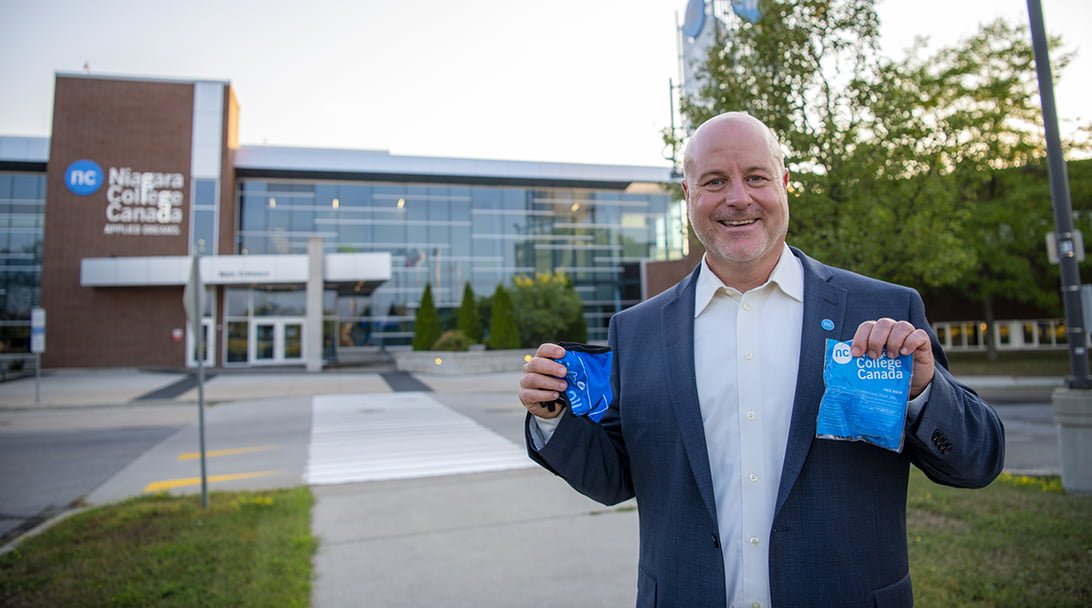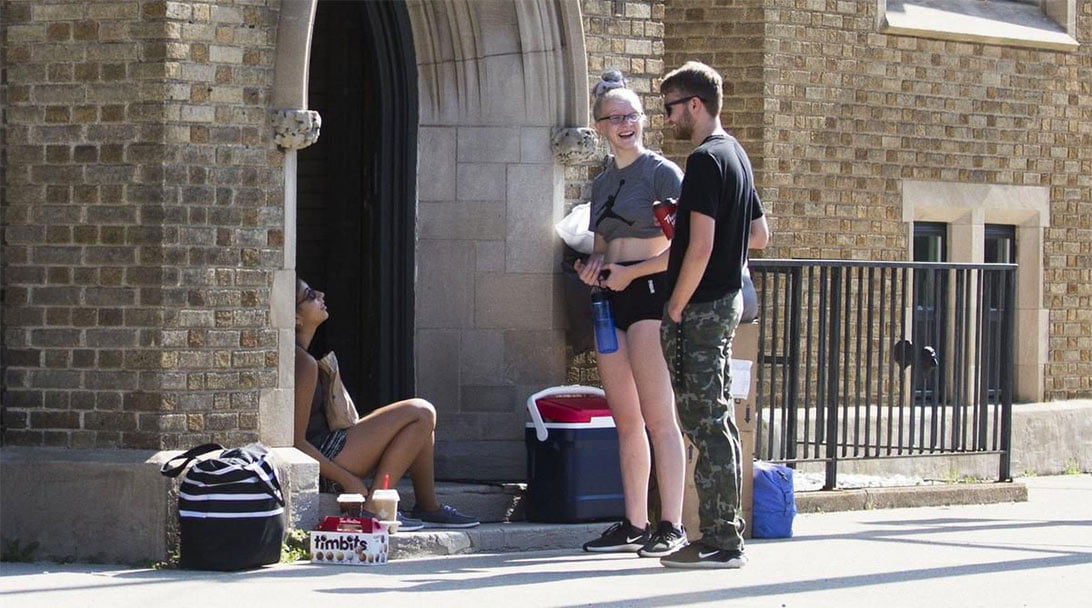
From health screenings and facemasks, to online learning and virtual events – it’s all part of the ‘new normal’ at Niagara College as it embarks on an academic year unlike any other.
Classes for Fall 2020 term will begin on September 9, with a new hybrid academic model in place along with extensive safety measures to help protect the College community during the COVID-19 pandemic.
As part of the hybrid academic model, about half of all students will be studying 100 percent remotely, while half will be studying online with limited on-campus classes or labs – where it is a required component of the program, and it can be delivered safely. This is expected to bring more than 4,500 students to NC’s Welland and Niagara-on-the-Lake campuses throughout the term, with staggered schedules to limit numbers at any given time and location.
“We are looking forward to welcoming our students and employees to a new academic year, whether they will be joining us remotely or on campus for a portion of their studies,” said NC president Sean Kennedy. “While we’ve adapted our college operations to the new realities of COVID-19, with health and safety as our highest priority, what hasn’t changed is the welcoming spirit of our College community, and our steadfast commitment to academic quality, and student success.”
Campus access and safety measures
For students and employees who will be on campus, the College has rolled out new campus access procedures and extensive on-campus safety measures – created in consultation with public health officials – to help provide a safe and healthy learning environment and workplace.
Only students with scheduled in-person classes or labs, or employees with pre-approval, will be permitted on campus. In addition to a mandatory one-time safety orientation, students and employees must complete and pass daily health screenings prior to arriving on campus, which will enable them to tap in for approved entry at designated campus access points.
Once on campus, non-medical facemasks are required in hallways and other common spaces, or whenever physical distancing of two meters isn’t possible. The College will distribute two facemasks to students and employees who will be on campus, and is providing training on how to safely wear and care for the masks.
Classrooms and labs have been reconfigured where needed, and signs and floor markers have been installed across NC campuses to promote physical distancing. Campuses are well-equipped with hand sanitizing stations, and disinfectant in labs for regular cleaning, while enhanced cleaning measures have been put in place.
Common areas where students would typically congregate remain closed, while most services, events and activities have shifted to a virtual format.
The latest information for students, employees and visitors is available on the College’s recently redesigned COVID-19 website.
Virtual Orientation
Whether their studies will be online or on-campus, a warm virtual welcome has been planned for new and returning students.
NC’s Student Administrative Council, and Centre for Student Engagement and Leadership have unveiled a completely virtual Fall Orientation, which began in early August and will continue into October. The events and activities aim to help prepare students for college life, connect with one another and the College community, learn about their programs and student services, explore hybrid or online learning strategies, and gain essential info about COVID-19 safety protocols.
On Orientation Day September 8, students will receive a welcome from the College president; and have an opportunity to participate in program and co-op information sessions. Activities during the first week of Fall term continue with a virtual scavenger hunt (September 9 and 10), an e-sports tournament (September 8-11), live karaoke (September 9), Q&As with The Library (Sept. 9, 10) and more.
NCSAC president Tom Price noted that NCSAC has been working closely with the College to provide the best possible student experience for students this fall.
“Student success is the result of the uniquely special partnership between NCSAC and Niagara College as we adjust to a very different start of the school year,” said Price. “Whether it is from student venues on campus, or their couch at home, we have adapted. NCSAC has been working in constant tandem with the College in these endeavors, from Instagram Live engagement, Orientation Week participation, to funding reallocation in support of our Nourishing Minds grocery gift card program for students.”
For details about Fall Orientation visit orientation.niagaracollege.ca and yourncsac.ca/yourevents.
Niagara College offers more than 150 diploma, bachelor degree and advanced level programs; as well as more than 600 credit, vocational and general interest Part-Time Studies courses. Areas of specialization include food and wine sciences, advanced technology, media, applied health and community safety, supported by unique learning enterprises in food, wine, beer, spirits, horticulture and esthetics. For more information visit niagaracollege.ca.






